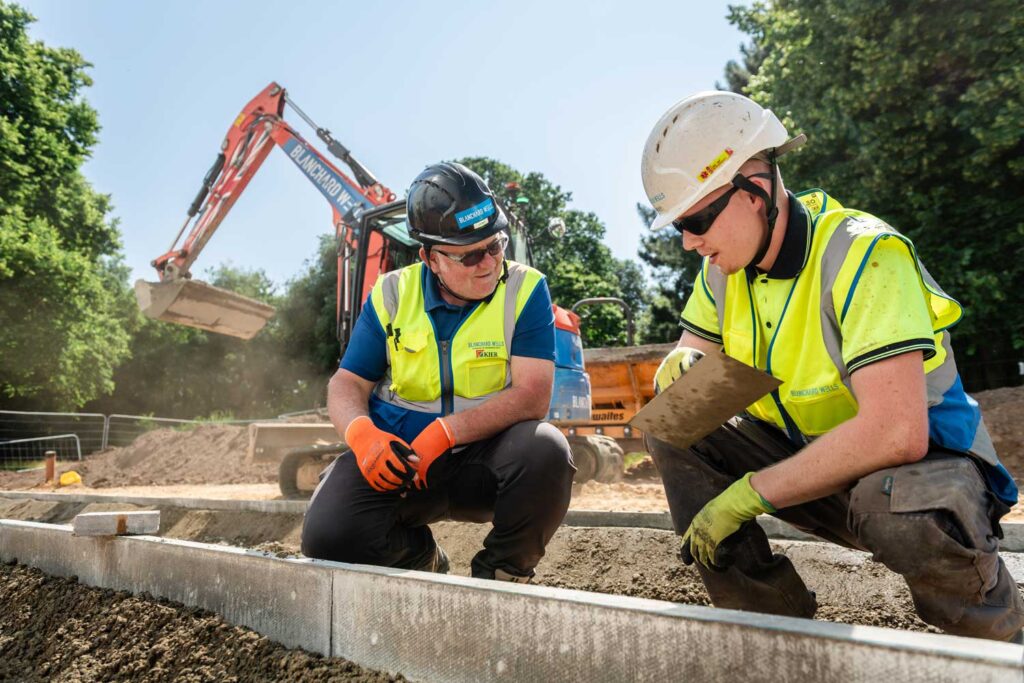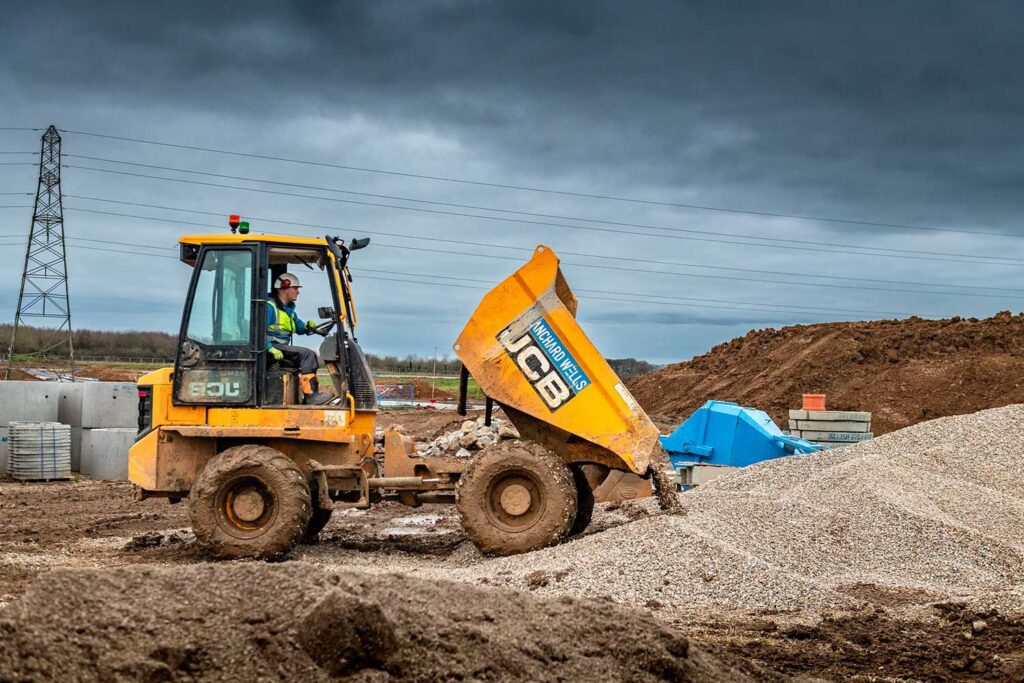What is Highways Engineering?
Highways engineering is all about keeping the country moving. It focuses on the design, construction, and maintenance of roads, motorways, and related infrastructure — from local cycle paths to major motorway networks.
From smart traffic systems and roundabouts to bridges, tunnels and road surfaces, highways engineers create and improve the transport links we all rely on. Their work connects people and places, supports the economy, and helps shape more sustainable, efficient communities.
Highways engineers also play a key role in meeting future challenges — like reducing congestion, cutting carbon emissions, and preparing for electric and autonomous vehicles.
Quick facts
Salary Range (UK)
£25,000–£70,000+ depending on experience and role
In Demand
Yes – highways and transport professionals are in short supply across the UK
Environment
Office-based, site-based, or hybrid

What Does a Highways Engineer Do?
Highways engineers plan and deliver projects that make journeys safer, faster, and more reliable. They use a mix of technical expertise, problem-solving, and project management to design everything from new roads to smart traffic systems.
Their responsibilities might include:
Planning and feasibility – Assessing whether a new road or junction is needed, where it should go, and how much it will cost
Designing road layouts – Using CAD software and modelling tools to design road geometry, signage, drainage and surfaces
Managing construction – Overseeing contractors, ensuring safety and quality standards are met
Improving road safety – Designing safer crossings, junctions, and cycleways
Maintaining roads – Planning resurfacing, pothole repairs and seasonal maintenance
Sustainability and innovation – Creating greener travel solutions and designing roads fit for future technologies
Whether it’s upgrading a busy roundabout or building a new bypass, highways engineers help deliver projects that make a real difference to how we live and travel.
Types of Highways Engineering Projects
Highways engineers work on a wide variety of projects, including:
Designing and improving A and B roads, traffic-calming measures, cycle lanes, pavements and crossings.
Major Roads and Motorways
Planning and delivering large-scale infrastructure — from new motorway junctions and dual carriageways to long-distance bypasses and tunnels.
Bridges and Structures
Designing and maintaining bridges, retaining walls, flyovers and underpasses as part of wider transport networks.
Smart and Sustainable Systems
Introducing traffic signals, smart signage, real-time traffic management systems and low-carbon materials into road design.
Maintenance and Asset Management
Planning for long-term upkeep — including resurfacing, repairs, road marking, drainage and winter services like gritting and snow clearance.
Is Highways Engineering Right for You?
If you want a career that’s varied, impactful, and offers both technical and creative challenges, highways engineering could be a great fit. You might enjoy this path if you:
Enjoy solving real-world problems
Like working with design software and technology
Are interested in how infrastructure shapes communities
Can balance practical thinking with attention to detail
Work well in a team and communicate confidently
Want to help build a safer, more sustainable transport system
You don’t need to have it all figured out — curiosity, teamwork, and a desire to improve how we travel are all great starting points.
Highways Engineering Career Pathways (with Employer Support)
There are multiple ways to start and grow your career in highways engineering — and with the right employer support, you can gain qualifications, experience, and professional recognition as you go.
Typical job roles and pathways include:
Hands-on learning, often through a Level 3 apprenticeship or T Level. Supporting site surveys, setting out work, and learning design principles.
Highways Technician / Assistant Engineer
Carrying out design work, preparing drawings, and assisting with traffic and safety improvements.
Graduate or Junior Highways Engineer
Working on detailed designs, project planning, and site inspections — often while working towards professional registration.
Highways Engineer / Site Engineer / Design Engineer
Managing sections of a project, liaising with contractors and clients, and overseeing quality and safety on site.
Senior Engineer / Project Manager
Taking responsibility for large schemes or specialist areas like bridges, smart systems, or safety audits.
Chartered Highways Engineer / Principal Engineer
Providing technical leadership, managing complex projects, and mentoring junior staff. Professional recognition is achieved through structured development and assessment.
Leading strategies for highways development, sustainability, and innovation at a senior level.




